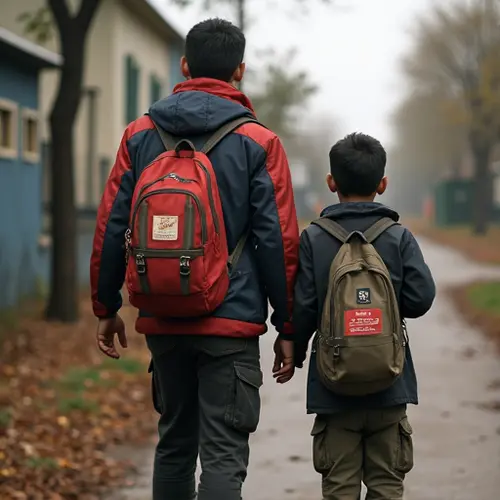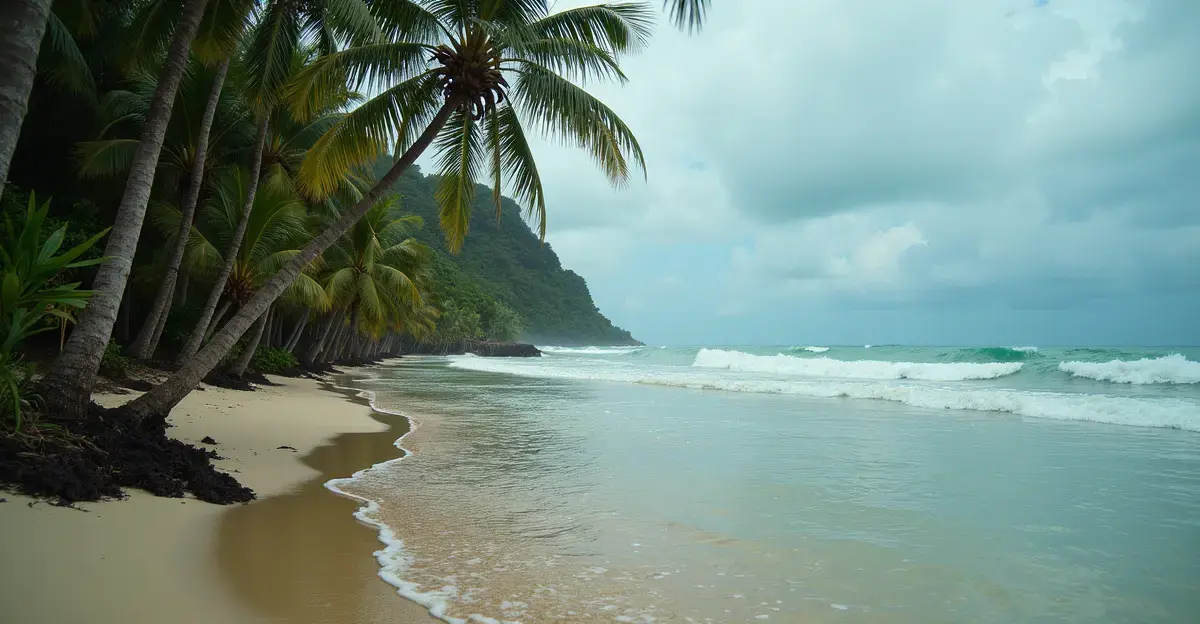Historic ICJ Ruling Opens Door for Climate Justice
Pacific Island nations are intensifying their demands for climate reparations following a landmark ruling from the International Court of Justice (ICJ) that could transform international climate law. The July 2025 advisory opinion, championed by Vanuatu and supported by over 130 countries, declared that countries have a legal obligation to protect the climate from greenhouse gas emissions and could be liable for reparations to nations harmed by climate change.
Existential Threat from Rising Seas
The urgency of these demands is underscored by alarming new data from NASA's sea level change science team, which reveals that Pacific Island nations including Tuvalu, Kiribati, and Fiji will experience at least 6 inches (15 centimeters) of irreversible sea level rise in the next 30 years, regardless of future emissions reductions. "We are witnessing the slow drowning of our homelands," said Solomon Islands Climate Change Division Director Thaddeus Siota. "This isn't a future problem - it's happening now, and we need immediate action."
Legal Precedent for Climate Accountability
The ICJ ruling represents a significant legal breakthrough for climate-vulnerable nations. The court declared that existing treaties and customary law require countries to prevent significant climate harm and uphold a "clean, healthy and sustainable environment" as fundamental to human rights. Crucially, the court warned that unchecked greenhouse gas emissions, fossil fuel production, exploration licenses, and subsidies may now constitute internationally wrongful acts, triggering liability for major emitters.
"This ruling gives us the legal foundation we've been seeking for decades," explained Vanuatu's lead climate negotiator. "While the opinion is advisory, it establishes powerful precedent that we can use in negotiations and potential litigation."
Pacific Resilience Facility: A Regional Solution
Pacific leaders are not waiting for international consensus. They've launched the Pacific Resilience Facility (PRF), a groundbreaking Pacific-owned financing mechanism designed to move beyond donor dependency. According to Pacific Islands News Association reports, the facility has already received US$167 million in pledges, with Pacific Forum Leaders committed to raising US$500 million by 2026.
"The PRF represents a fundamental shift from dependency to ownership," said Alfred Ralifo of WWF-Pacific. "It allows us to directly fund local communities for climate adaptation and resilience initiatives without the bureaucratic delays that have plagued international climate finance."
Economic Impacts and Adaptation Needs
The economic stakes are enormous. A comprehensive study published in Scientific Reports reveals that current annual economic losses from coastal flooding in the Asia-Pacific region amount to $26.8 billion, with projections surging to between $143.7 and $197.8 billion by 2050 due to sea level rise effects alone. Atoll nations including Kiribati, Maldives, Marshall Islands, and Tuvalu face the most severe losses relative to GDP.
The World Meteorological Organization's State of the Climate in the South-West Pacific 2023 report highlights the "triple whammy" of accelerating sea level rise, ocean warming, and acidification creating an existential crisis for Pacific Islands. Sea level rise in the region is above the global average, with some areas experiencing 10-15 cm (4-6 inches) of rise - nearly twice the global rate since 1993.
Path Forward at COP30 and Beyond
At COP30 in Belém, Brazil, Pacific Island nations led powerful demonstrations demanding urgent climate action. Over 70,000 people including Indigenous leaders and climate activists staged a "Historic Funeral for Fossil Fuels" march, carrying a symbolic coffin representing coal, oil, and gas.
"We need fast, fair, and predictable climate finance," urged UN Climate Change Executive Secretary Simon Stiell. "Without trust and resources, global climate action will stall, and the most vulnerable will pay the price."
The Pacific's push for climate reparations represents more than just financial demands - it's about survival, sovereignty, and justice for nations that contribute less than 0.02% of global emissions yet face the most severe consequences of climate change. As the PRF prepares to begin operations in early 2026, Pacific leaders are sending a clear message: the time for climate justice is now.

 Nederlands
Nederlands
 English
English
 Deutsch
Deutsch
 Français
Français
 Español
Español
 Português
Português








